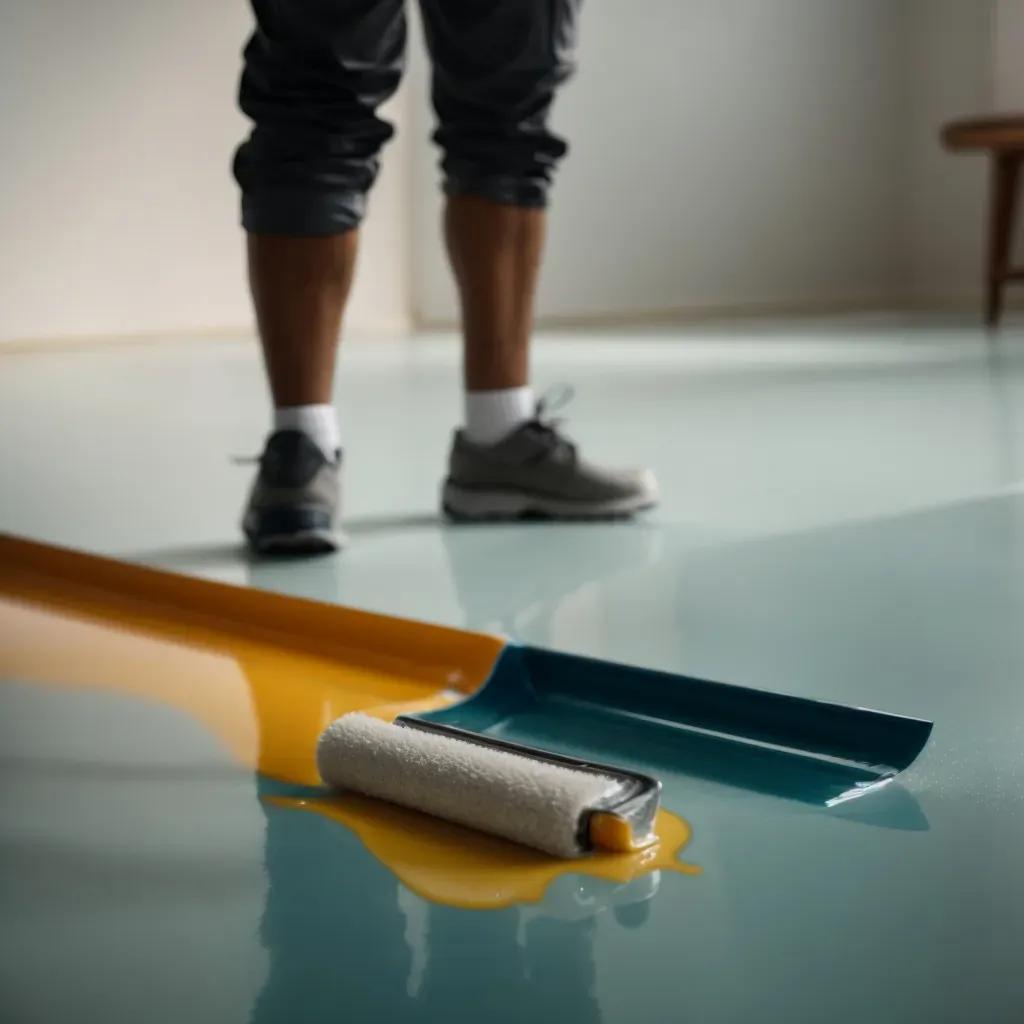Imagine you’re standing at a crossroads, deciding between two paths that will shape the future of your garage floor. The choice between rubber coatings and epoxy solutions can be pivotal in transforming your space.
As you weigh the options, consider this: durability, aesthetics, maintenance, and cost all play a significant role in determining which path to take. Each has its strengths and weaknesses, but which one will emerge as the ultimate victor in your garage floor saga?
Table of Contents
Durability and longevity
When revamping your garage floor, understanding how rubber coatings and epoxy solutions compare in terms of durability and longevity is crucial.
Rubber coatings are known for their flexibility and impact resistance, making them a durable choice for high-traffic areas like garages. They can withstand heavy machinery, tools dropping, and even vehicle traffic without easily denting or scratching. This durability ensures that your garage floor remains protected for years to come, giving you peace of mind knowing it can handle whatever you throw its way.
On the other hand, epoxy solutions offer excellent durability as well. Epoxy coatings create a hard, glossy surface that’s resistant to stains, chemicals, and abrasions. This makes them ideal for garages where oil spills or chemical leaks are common occurrences. The longevity of epoxy coatings is impressive, with minimal maintenance required to keep them looking fresh and new. With proper care, an epoxy-coated garage floor can last for many years without showing signs of wear and tear.
Ultimately, when considering durability and longevity, both rubber coatings and epoxy solutions have their strengths. Rubber coatings excel in impact resistance, while epoxy coatings shine in their resistance to stains and chemicals. Depending on your specific needs and usage of the garage, one option may be more suitable for you than the other.
Aesthetics and design flexibility
Enhance the visual appeal of your garage floor by exploring the design flexibility offered by both rubber coatings and epoxy solutions. When it comes to aesthetics, rubber coatings typically provide a more industrial look, with limited options for customization.
On the other hand, epoxy solutions offer a wide range of colors, patterns, and finishes, allowing you to create a garage floor that reflects your style and personality.
With rubber coatings, you’re restricted to a few basic colors and a uniform texture, which may not satisfy your desire for a visually appealing space. Epoxy, on the other hand, opens up a world of design possibilities. You can choose from solid colors, and metallic finishes, or even create a decorative flake floor that adds depth and dimension to your garage.
Additionally, epoxy coatings can be customized to match the overall theme of your home or complement your existing decor. Whether you prefer a sleek modern look, a rustic aesthetic, or a vibrant pop of color, epoxy provides the design flexibility you need to make your garage floor stand out.
Installation process and maintenance
To ensure a seamless installation process and easy maintenance for your garage floor, you must consider the differences between rubber coatings and epoxy solutions. Rubber coatings typically come in a roll-out form, making installation quick and straightforward. With adhesive backing, you can simply roll out the rubber material onto your garage floor, ensuring a snug fit. Maintenance for rubber coatings involves regular sweeping and occasional mopping with a mild detergent to keep it clean and looking fresh.
On the other hand, epoxy solutions require a more meticulous installation process. This involves preparing the concrete surface, applying the epoxy coating, and allowing it to cure properly. While epoxy coatings may take longer to install due to curing times, they provide a durable and long-lasting finish. Maintenance for epoxy floors includes regular sweeping and occasional mopping with a gentle cleaner to preserve its shine.
When choosing between rubber coatings and epoxy solutions for your garage floor, consider your installation timeline and maintenance preferences. If you prioritize quick and easy installation with simple maintenance, a rubber coating may be the way to go. However, if you value durability and longevity, investing in an epoxy solution could be the better choice for your garage floor needs.
Cost considerations
Considering the financial aspect, understanding the cost disparities between rubber coatings and epoxy is crucial before deciding for your garage floor renovation.
While rubber coatings are generally more budget-friendly upfront, they may require more frequent reapplications over time, adding to the long-term cost. On the other hand, epoxy solutions might have a higher initial investment, but they tend to be more durable and require less maintenance, potentially saving you money in the long run.
When opting for rubber coatings, you can expect to pay around $1.50 to $3 per square foot for materials, plus additional costs for professional installation if needed. However, keep in mind that these coatings may need recoating every 2-3 years, which can accumulate expenses over time.
In contrast, epoxy coatings typically range from $3 to $7 per square foot for materials, with professional installation costs varying. The durability of epoxy can result in fewer repairs and recoating, making it a cost-effective choice in the long term.
While rubber coatings offer an initial cost advantage, epoxy solutions provide better durability and longevity, potentially saving you money in maintenance and replacement down the road. Consider your budget and long-term goals to make the most cost-effective decision for your garage floor renovation.
Key Takeaways
– Rubber coatings offer durability and flexibility, while epoxy solutions provide diverse aesthetic options.
– Installation ease and maintenance differ between rubber coatings (quick) and epoxy solutions (meticulous).
– Cost varies with rubber coatings being budget-friendly initially and epoxy solutions offering long-term durability.
– Decision factors include usage needs, visual appeal, maintenance, and budget considerations for the garage flooring.

